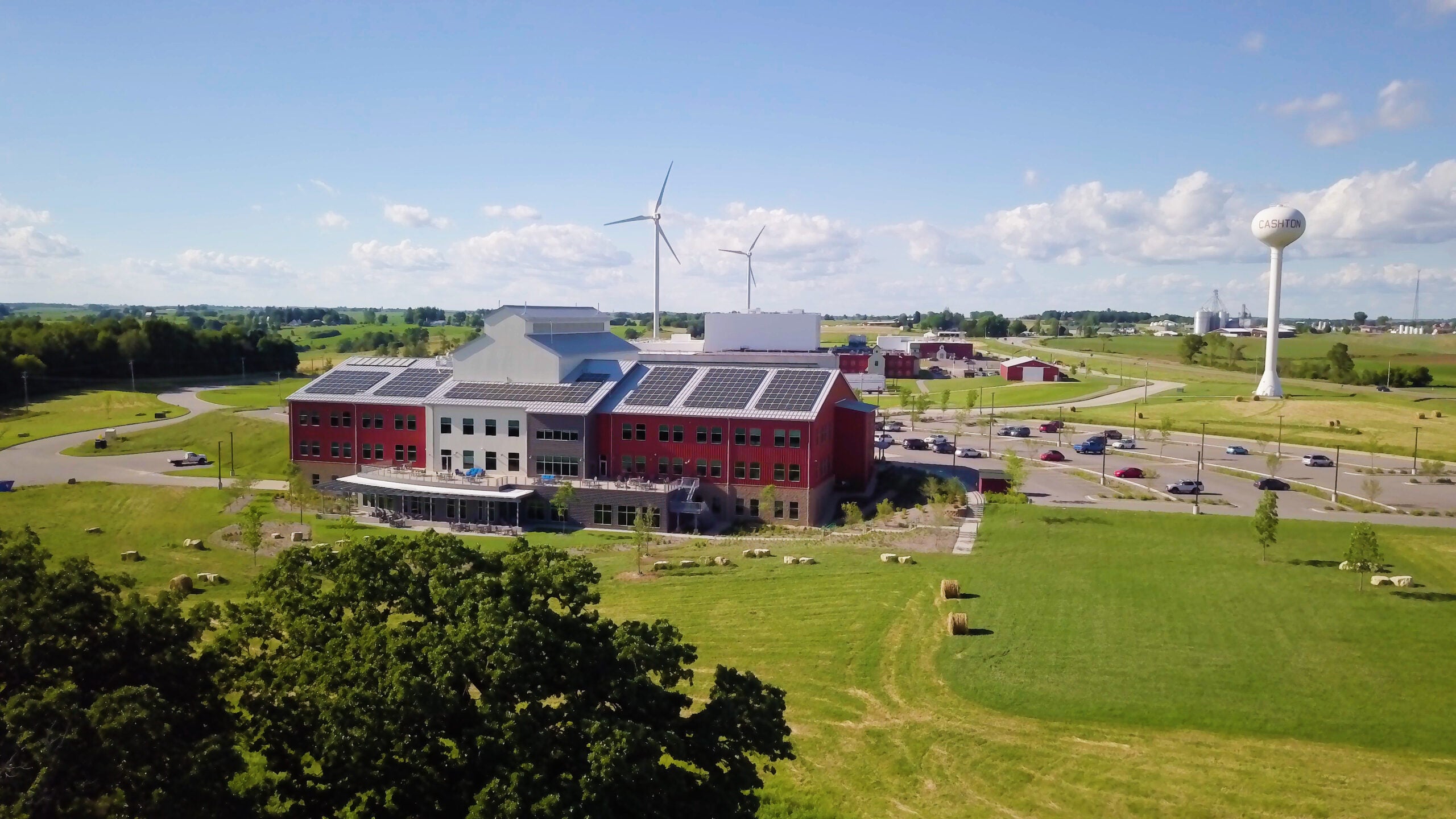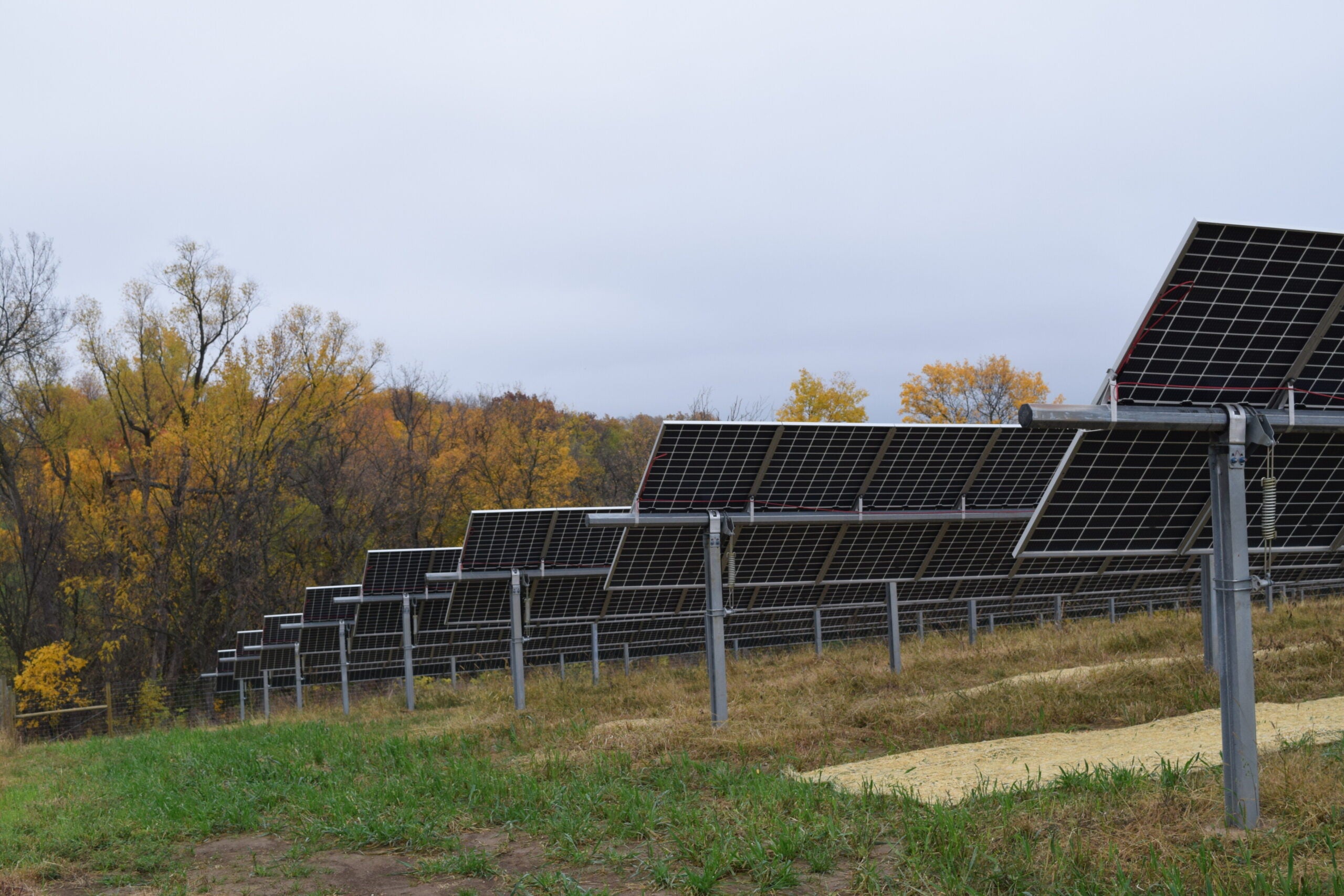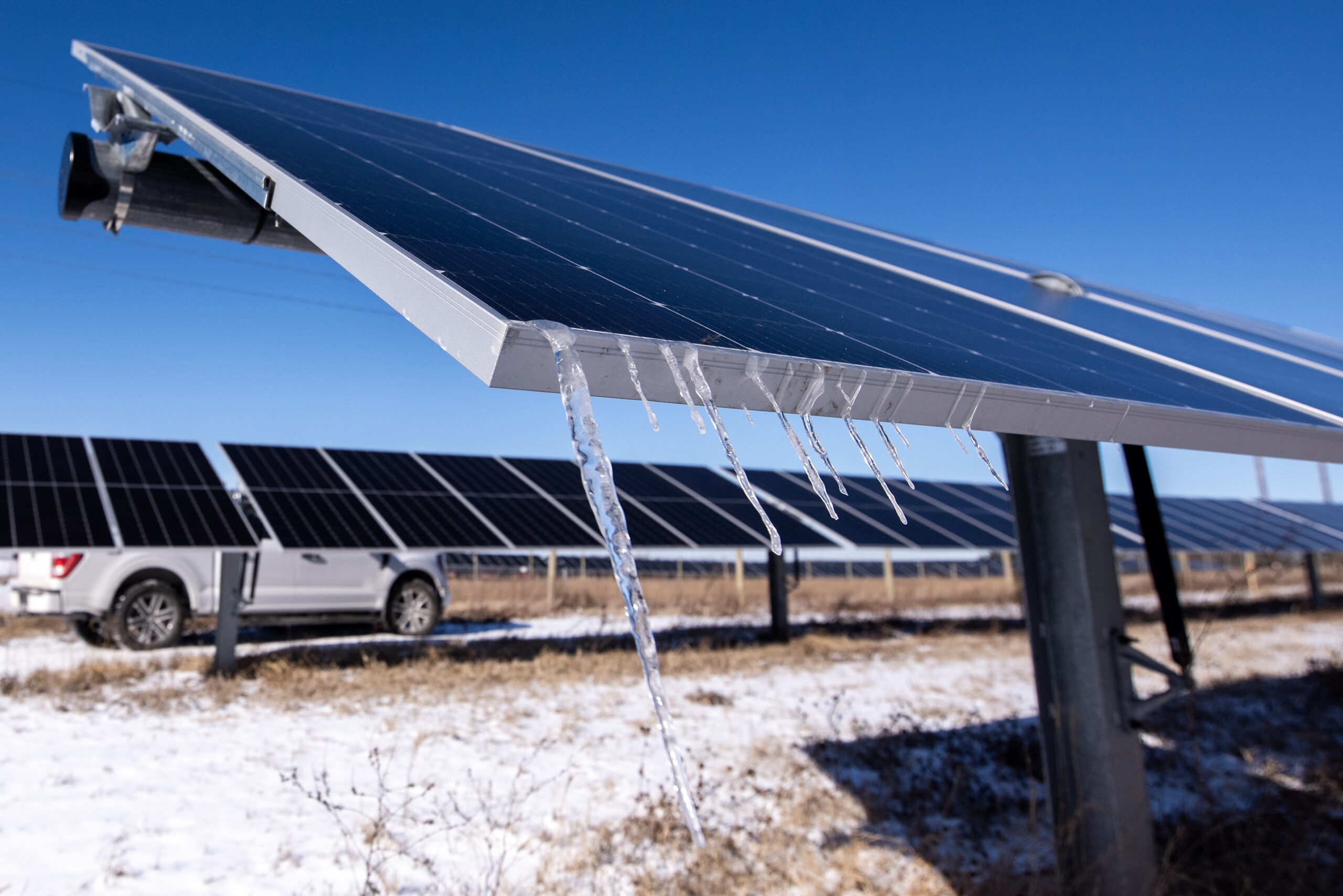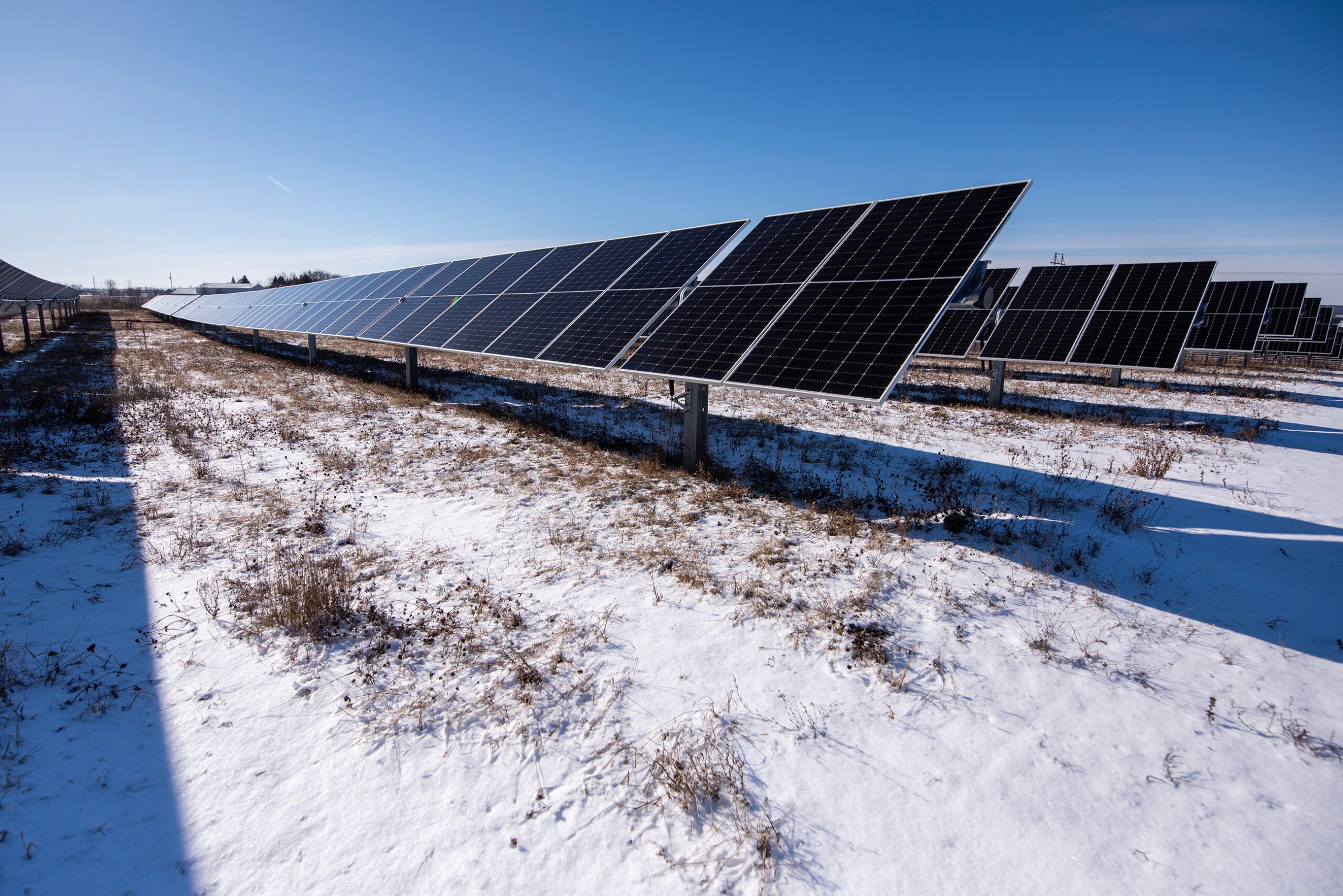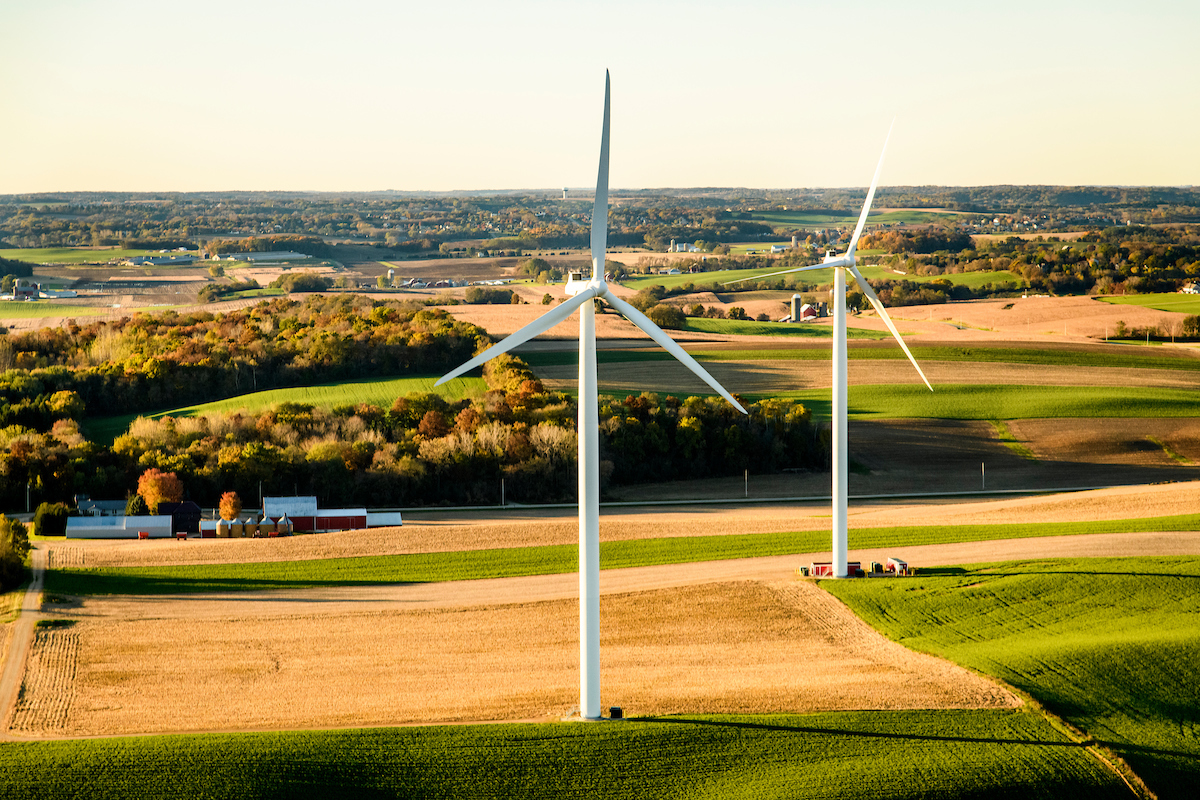Organic Valley is helping launch several new solar projects in southwestern Wisconsin.
The farmer cooperative has agreed to buy power from a group of municipal utilities in order to fund more than 12 megawatts of solar projects in Wisconsin, Minnesota and Iowa.
![]()
Photo courtesy Organic Valley
News with a little more humanity
WPR’s “Wisconsin Today” newsletter keeps you connected to the state you love without feeling overwhelmed. No paywall. No agenda. No corporate filter.
“The cost of electricity is going to be reduced over the life of these systems for everyone in these communities,” said Stanley Minnick, energy services manager at Organic Valley.
Minnick said the program will increase access to renewable energy in rural communities without requiring an investment from residents.
“They’re small towns, they’re rural towns in the Midwest that get to be part of a growing trend in adopting renewable energy right in their backyard,” Minnick said.
OneEnergy Renewables will build and own the solar projects, selling the power to the Upper Midwest Municipal Energy Group and ultimately Organic Valley.
OneEnergy CEO Bill Eddie said Organic Valley’s involvement helped bring different stakeholders together.
“It’s something that’s kind of rare in the business for large users of power that are active in the community to also work closely with their utility to make new projects happen,” Eddie said.
Eddie said the solar projects will also include habitat for bees and other pollinators.
Photo Rob Davis/Center for Pollinators in Energy
“We didn’t want to occupy space and not have multiple uses. So the pollinator habitat allows us to not only do solar but provide habitat and potentially a resource in the production of honey on the projects, as well as provide benefit to surrounding farms who depend on pollinators for their crops,” Eddie said.
Construction on the projects will begin next spring and is expected to be complete by 2019.
Added to their existing solar, wind and geothermal energy resources, Minnick said the new partnership will make Organic Valley the largest food company in the world to be run solely on renewable energy. He said the cooperative hopes the partnership can serve as a model for other businesses.
“I would be happy if five years from now we were not the largest food company in the world to get all our electricity from renewable energy, because it would mean that other larger companies were stepping up to the plate and leading the charge alongside us,” Minnick said
Wisconsin Public Radio, © Copyright 2025, Board of Regents of the University of Wisconsin System and Wisconsin Educational Communications Board.

